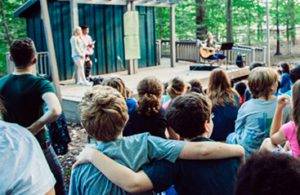What is the Burgundy community?
The Burgundy community is united by its commitment to creating a learning community that affirms children for who they are and where they are developmentally and that helps all our students realize their full potential as students and as people. Burgundy doesn’t just refer to our school or our campuses.
Why choose Burgundy elementary school?
“The teachers here are like family and friends – they really want to help you. As a result, you’re more willing to learn from them.” Burgundy is an independent Junior Kindergarten through 8th Grade school that helps children develop a strong sense of community, self-worth, and intellectual curiosity.
What is the admission process at Burgundy?
Burgundy educates children from Junior Kindergarten through grade 8. The admission process begins in the fall prior to the year in which a student enrolls. From its inception, Burgundy has educated children in innovative ways. Our students learn by doing.
What is it like to go to the University of Burgundy?
Burgundy Middle School students are scholars, athletes, artists, and role models for their younger peers. Students devote time to community service projects on campus and off. An engaging, hands-on curriculum helps our students develop a love of learning and grow academically from Junior Kindergarten through 8th grade.

Where is the Burgundy Center for Wildlife Studies?
We also support the Burgundy Center for Wildlife Studies, nestled in 506 acres of a secluded valley in West Virginia; most students make two trips a year there.
Is Burgundy a racially integrated school?
We’re also proud to be the first racially integrated school in Virginia — years earlier than the law requiring public schools to integrate.
Student Visits
For the 2022-23 school year, applicant visits will be conducted in the early spring. During these visits, applicants for Junior Kindergarten and Kindergarten will meet in groups and interact with Burgundy teachers on the morning of either Saturday, January 28 or February 5.
Recommendations
Teacher recommendations are required for every applicant who is/has been in a school, preschool or day care program. Recommendation forms are completed and processed through our Application Portal. You will be asked to provide your child’s current teacher’s email through the portal.
Transcripts
Transcripts/grade records/progress reports are required for all applicants (including Junior Kindergarten applicants if available). Please complete, sign, and submit a Transcript Request Form (available in our Application Portal) to your child’s school, so records can be forwarded to Burgundy’s Admission Office.
Questions?
If you have any questions, please call the Admission Office at 703.329.6968.
What is the approach to mathematics at Burgundy Middle School?
Burgundy Middle School uses a constructivist approach to learning mathematics, through which students use inquiry and discovery approaches to solving problems at increasing levels of difficulty as they develop a deeper understanding, and eventual mastery of concepts.
What is Burgundy Middle School?
Burgundy Middle School uses a constructivist approach to learning mathematics, through which students use inquiry and discovery approaches to solving problems at increasing levels of difficulty as they develop a deeper understanding, and eventual mastery of concepts . The program is challenging and highly collaborative.
What is the theme of 6th grade humanities?
The theme for 6th Grade Humanities is “Origins & Myths.” Students explore how myths, legends, folktales, and other stories have risen from various cultures and how such stories continue to influence our world today. After reviewing Greek Mythology, students compare and contrast myths from around the world. The hero’s journey, a traditional narrative structure, connects stories of the past to more contemporary stories. In addition to the thread of mythologies past and present, students are asked to take a comparative look at several major world religions (Judaism, Islam, Christianity, Hinduism, and Buddhism), focusing on water as a defining and uniting common geographic feature, limited resource, and enduring symbol. Our explorations take us through Europe, Africa, South Asia, and the Middle East, and students complete several collaborative projects that involve research, technology, and/or multimedia. All of the topics mentioned above serve as engaging content for students to explore historical events, develop their reading comprehension and vocabulary skills, and hone their creative, persuasive and expository writing.

Popular Posts:
- 1. https m animaljam com parent portal
- 2. loretto parent portal
- 3. hillsdale schools parent portal
- 4. kms parent portal login
- 5. cheer force parent portal
- 6. commack ufsd parent portal
- 7. ithaca parent portal
- 8. aeries portal paradise ca parent
- 9. chippewa valley schools org parent portal
- 10. how to find your gpa on parent portal